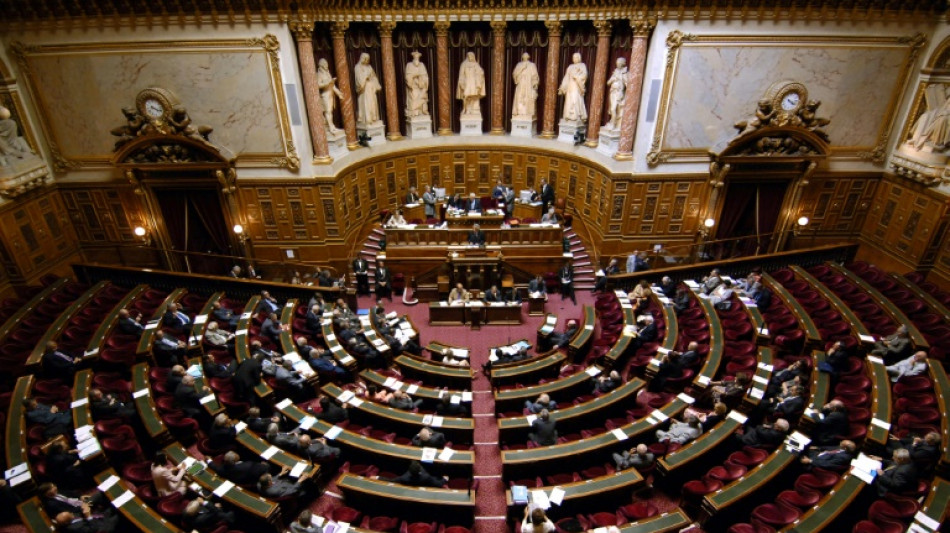
-
 Merino brace sends Arsenal past Slavia in Champions League
Merino brace sends Arsenal past Slavia in Champions League
-
Djokovic makes winning return in Athens

-
 Napoli and Eintracht Frankfurt in Champions League stalemate
Napoli and Eintracht Frankfurt in Champions League stalemate
-
Arsenal's Dowman becomes youngest-ever Champions League player

-
 Cheney shaped US like no other VP. Until he didn't.
Cheney shaped US like no other VP. Until he didn't.
-
Pakistan edge South Africa in tense ODI finish in Faisalabad

-
 Brazil's Lula urges less talk, more action at COP30 climate meet
Brazil's Lula urges less talk, more action at COP30 climate meet
-
Barca's Lewandowski says his season starting now after injury struggles

-
 Burn urges Newcastle to show their ugly side in Bilbao clash
Burn urges Newcastle to show their ugly side in Bilbao clash
-
French pair released after 3-year Iran jail ordeal

-
 Getty Images largely loses lawsuit against UK AI firm
Getty Images largely loses lawsuit against UK AI firm
-
Cement maker Lafarge on trial in France over jihadist funding

-
 Sculpture of Trump strapped to a cross displayed in Switzerland
Sculpture of Trump strapped to a cross displayed in Switzerland
-
Pakistan's Rauf and Indian skipper Yadav punished over Asia Cup behaviour

-
 Libbok welcomes 'healthy' Springboks fly-half competition
Libbok welcomes 'healthy' Springboks fly-half competition
-
Reeling from earthquakes, Afghans fear coming winter

-
 Ronaldo reveals emotional retirement will come 'soon'
Ronaldo reveals emotional retirement will come 'soon'
-
Munich's surfers stunned after famed river wave vanishes

-
 Iran commemorates storming of US embassy with missile replicas, fake coffins
Iran commemorates storming of US embassy with missile replicas, fake coffins
-
Gauff sweeps Paolini aside to revitalise WTA Finals defence

-
 Shein vows to cooperate with France in probe over childlike sex dolls
Shein vows to cooperate with France in probe over childlike sex dolls
-
Young leftist Mamdani on track to win NY vote, shaking up US politics

-
 US government shutdown ties record for longest in history
US government shutdown ties record for longest in history
-
King Tut's collection displayed for first time at Egypt's grand museum

-
 Typhoon flooding kills over 40, strands thousands in central Philippines
Typhoon flooding kills over 40, strands thousands in central Philippines
-
Trent mural defaced ahead of Liverpool return

-
 Sabalenka to face Kyrgios in 'Battle of Sexes' on December 28
Sabalenka to face Kyrgios in 'Battle of Sexes' on December 28
-
Experts call for global panel to tackle 'inequality crisis'
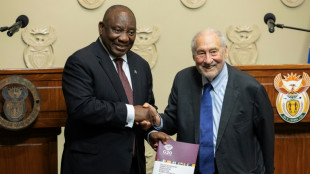
-
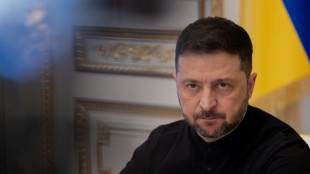 Backed by Brussels, Zelensky urges Orban to drop veto on EU bid
Backed by Brussels, Zelensky urges Orban to drop veto on EU bid
-
After ECHR ruling, Turkey opposition urges pro-Kurd leader's release
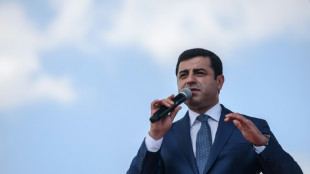
-
 UK far-right activist Robinson cleared of terror offence over phone access
UK far-right activist Robinson cleared of terror offence over phone access
-
World on track to dangerous warming as emissions hit record high: UN

-
 Nvidia, Deutsche Telekom unveil 1-bn-euro AI industrial hub
Nvidia, Deutsche Telekom unveil 1-bn-euro AI industrial hub
-
Which record? Haaland warns he can get even better

-
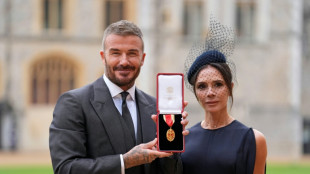 Football star David Beckham hails knighthood as 'proudest moment'
Football star David Beckham hails knighthood as 'proudest moment'
-
Laurent Mauvignier wins France's top literary award for family saga

-
 Indian Sikh pilgrims enter Pakistan, first major crossing since May conflict
Indian Sikh pilgrims enter Pakistan, first major crossing since May conflict
-
Former US vice president Dick Cheney dies at 84
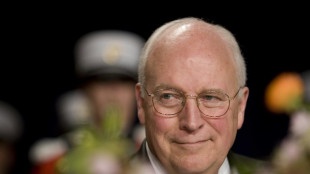
-
 Fiorentina sack Pioli after winless start in Serie A
Fiorentina sack Pioli after winless start in Serie A
-
Oscar-winning Palestinian films daily 'Israeli impunity' in West Bank

-
 Spain's Telefonica shares drop on dividend cut, net loss
Spain's Telefonica shares drop on dividend cut, net loss
-
Fierce mountain storms kill nine in Nepal
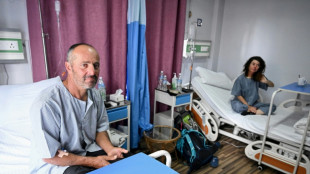
-
 Divisive Czech cardinal Dominik Duka dies at 82
Divisive Czech cardinal Dominik Duka dies at 82
-
Shein vows to cooperate with France in sex doll probe

-
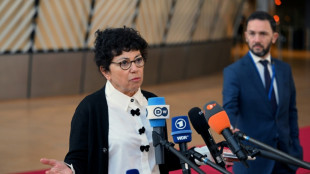 EU in last-ditch push to seal climate targets before COP30
EU in last-ditch push to seal climate targets before COP30
-
Finnish ex-PM Marin says her female cabinet faced torrent of sexism
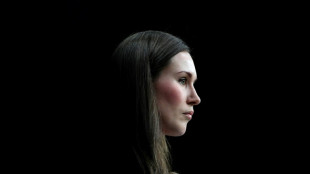
-
 Sudan army-backed council to meet on US truce proposal: govt source
Sudan army-backed council to meet on US truce proposal: govt source
-
BP profit surges despite lower oil prices

-
 Shein vows to cooperate with France in childlike sex doll probe
Shein vows to cooperate with France in childlike sex doll probe
-
National hero proposal for Indonesia's Suharto sparks backlash
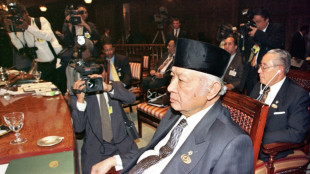

Parliamentary hearings worldwide used to spread anti-vaccine conspiracies
Standing on the podium of the Ohio Statehouse in the United States last year, a nurse pressed a key against her neck aiming to prove that Covid vaccines make people magnetic.
The key -- like the theory -- didn't stick, instead tumbling down her neck and leading to the video of her testimony going viral.
While the nurse's failure mainly prompted derision, it was just one example of how parliamentary hearings worldwide have been weaponised to spread vaccine misinformation since the start of the pandemic.
Parliaments have hosted known conspiracy theorists, who quickly post edited videos of their testimony on social media where the prestigious platform gives them the veneer of legitimacy, experts warn.
The nurse at the Ohio Statehouse was following the lead of anti-vaxxer Sherri Tenpenny, who had earlier testified at the invitation of Republican lawmakers, and has promoted the thoroughly debunked theory that coronavirus vaccines make people magnetic.
Known spreaders of Covid-19 misinformation have addressed hearings across the United States, such as Peter McCullough, who has testified to a Texas Senate committee as well as the US Senate in Washington DC.
Such parliamentary hearings "are part of an arsenal of disinformation," said Sebastian Dieguez, a neuroscientist specialising in conspiracy theories at Switzerland's University of Fribourg.
These figures paradoxically "need the seal of legitimacy imparted by the 'system'," such as mainstream politicians and media, that they spend so much time and rejecting, he told AFP.
- 'A trap' -
"I do think having the opportunity to participate in hearings gives those perspectives a legitimate platform," Molly Reynolds of the US think tank Brookings Institution told AFP.
She said she suspected that in some cases Republicans invited anti-vaccine witnesses to hearings to support their own views.
Dieguez said one argument was that, in a democratic legislative process, all voices have a right to be heard.
But this can be "a bit of a trap", he warned, "if it means giving a false sense of balance by offering a platform to positions that are not only in the minority but also often quite outrageous".
France's Parliamentary Office for the Evaluation of Scientific and Technological Choices has been accused of doing just that.
Earlier this year, it heard from speakers who gave misleading statistics about the adverse effects of Covid-19 vaccines.
Alain Fischer, who coordinates France's pandemic vaccine strategy, criticised the office after himself giving testimony at the Senate hearing in May.
It was "regrettable... that a public hearing was held where specialists who rely on scientific data and pseudo-experts who promote opinion not based on facts were placed on the same level," he told L'Express newspaper.
"This amounts to granting them a form legitimacy."
- Time to change the rules? -
Mathematician and politician Cedric Villani, the then president of the office, rejected the criticism, saying the panel "does not claim to offer more or less legitimacy to one person or another".
Senator Sonia de La Provote, the office's rapporteur, said the office was "proud" to hear from everyone.
"Only giving the floor to those we consider have the right speak seems to me to be particularly detrimental to our democratic functioning," she told AFP.
In the tiny neighbouring country of Luxembourg, several known anti-vaccine figures including French scientist Luc Montagnier spoke in parliament in January.
They were brought along by a group whose petition about compulsory Covid vaccines gained enough signatures to trigger a parliamentary debate.
The president of Luxembourg's Chamber of Deputies Fernand Etgen told AFP in January that it was "obvious" that "most of their assertions were untrue, false or misleading".
The parliament is looking at changing the rules about how much notification it gets about the identity of those who testify.
In January, it only found out who would be speaking the day before the event, making it "impossible for members of parliament to prepare," Etgen said.
T.Bondarenko--BTB




